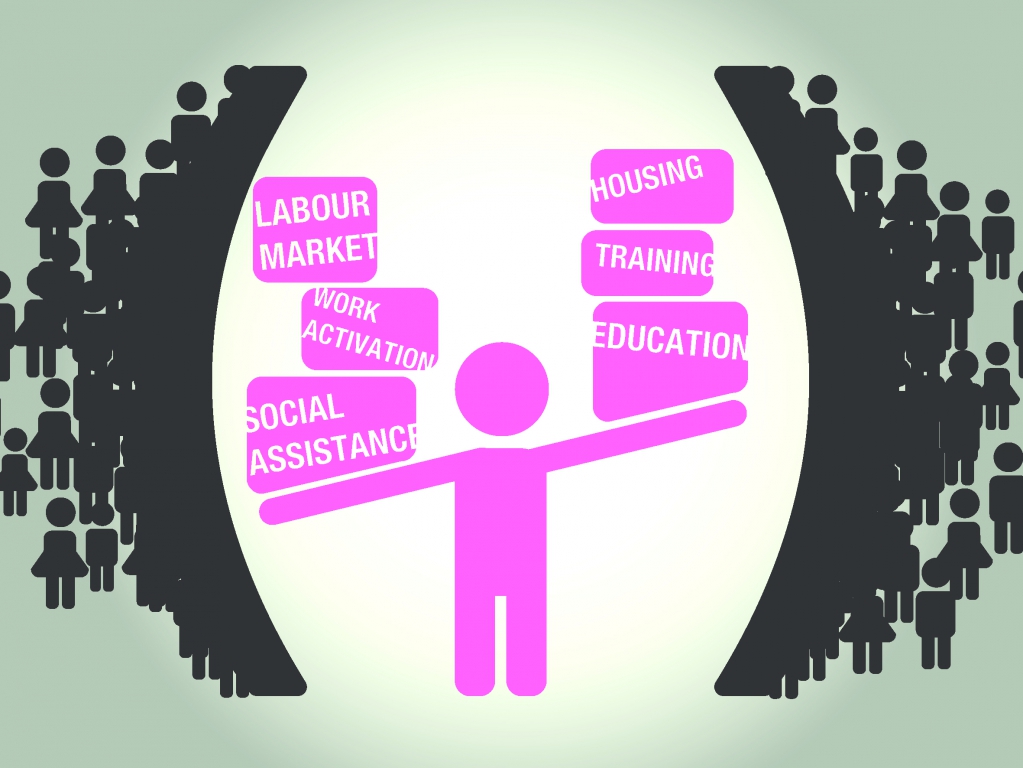Roma Rights 1-2, 2007: Social Assistance
19 June 2007
 This issue of Roma Rights takes a critical look at the current efforts to retool the nature of the welfare state across Europe, and how these efforts affect Europe's Romani population. The welfare state attempts to enact social justice for citizens by mitigating unfairness created by market economies through proactive social assistance schemes. In the past, these have consisted of unemployment benefits, public health care, and other social services. Recent labour market reforms have also introduced "market-friendly" activation policies, which aim to reduce public costs for social assistance by re-integrating the excluded into the labour market. While these policies seem promising in some respects, their real effects on the most vulnerable groups have been mixed, and in some cases harmful. For Roma, who as a group, are most in need of the assistance and the re-integration promised by the welfare state, these new social assistance schemes may pose a serious danger. Due to the interplay of multiple exclusionary factors as well as open discrimination, Roma are often unable to access and benefit from these measures. When these measures fail to lead to jobs, as they often do, Roma are left with no work and no social assistance, victims of more "efficient," but less just, welfare policy.
This issue of Roma Rights takes a critical look at the current efforts to retool the nature of the welfare state across Europe, and how these efforts affect Europe's Romani population. The welfare state attempts to enact social justice for citizens by mitigating unfairness created by market economies through proactive social assistance schemes. In the past, these have consisted of unemployment benefits, public health care, and other social services. Recent labour market reforms have also introduced "market-friendly" activation policies, which aim to reduce public costs for social assistance by re-integrating the excluded into the labour market. While these policies seem promising in some respects, their real effects on the most vulnerable groups have been mixed, and in some cases harmful. For Roma, who as a group, are most in need of the assistance and the re-integration promised by the welfare state, these new social assistance schemes may pose a serious danger. Due to the interplay of multiple exclusionary factors as well as open discrimination, Roma are often unable to access and benefit from these measures. When these measures fail to lead to jobs, as they often do, Roma are left with no work and no social assistance, victims of more "efficient," but less just, welfare policy.
Download Roma Rights 1-2, 2007: Social Assistance (PDF)
-
The Changing Face of Welfare (Sinan Gökçen)
-
Employment Activating Social Assistance Schemes Not Working for Roma and Travellers (Tara Bedard)
-
Equal Rights for the Romani Population (Jean-Michel Belorgey)
-
Equal Access to Social Protection in the EU (Erika Szyszczak)
-
Très Difficile: Problematic of Civic Associations' Intervention in Human Rights Situations (Larry Olomoofe)
-
Bulgaria * Czech Republic * France * Hungary * Italy * Kosovo * Moldova * Portugal * Romania * Russia * Serbia * Slovakia * Switzerland * Turkey * United Kingdom
-
Supporting Education for Romani Children in Bijeljina, Bosnia (Meredoc McMinn and Danijela Colakovic)
-
European Social Charter Housing Rights Victory for Roma
-
“What Happens to Us Now?” (Tara Bedard and Larry Olomoofe)
-
Litigating Discrimination in Access to Social Services (Andi Dobrushi)
-
European Court of Human Rights Delivers Justice to Romani Victims After Seventeen Years (Constantin Cojocariu)
-
Strasbourg Court Finds Violation of Article 3 in the First Macedonian Roma Torture Case (Anita Danka)
-
Upcoming Priorities for the ERRC Under New Leadership (Vera Egenberger)
-
Šuvdipe pe rig (ekskluzija) e Rromengi katar astaripe butjarimaske thanesko
-
Chronicle




